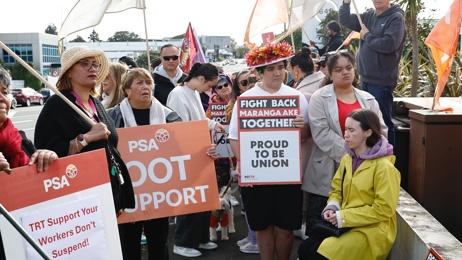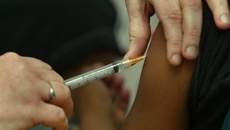
Antidepressant medications dispensed to children and teenagers increased 53 per cent in the past five years, according to a report on the state of New Zealand’s public mental health sector published today.
Across all age groups, the number of antidepressants dispensed has risen by about a fifth in that period and reached 2,180,505 in the last financial year, according to Te Hiringa Mahara, the Mental Health and Wellbeing Commission. Antipsychotic medications have also increased sharply.
The stark increase in prescribing is one of several issues identified by the watchdog in its latest assessment of the sector, which also includes a doubling of staff vacancies, a sudden fall in the number of people accessing government-funded telehealth services and websites, and fewer people accessing the specialist services that treat people with the most severe conditions.
Te Hiringa Mahara said the increase in prescribing at the same time that fewer people are accessing specialist services suggests that GPs, rather than psychiatrists, are responsible for most of the increase.
Susanna Every-Palmer, a psychiatrist and professor at the University of Otago Wellington, said the increase in drugs being prescribed is a “worrying trend” that may be a result of GPs compensating for long waits for access to specialist treatment.
“It’s a bit of a red flag that people aren’t able to access talking-based therapies,” Every-Palmer said.
The growth of prescribing to young people has been a source of growing unease among experts in the sector. In 2021, a study by two prominent researchers at the University of Auckland found that the benefits of antidepressants for children and adolescents are usually modest and the drawbacks can be major, including increases in suicidal thinking in some users.
If antidepressants are prescribed to young people, those researchers said, they should be used in conjunction with evidence-based talk therapies such as cognitive behavioural therapy (CBT) and closely monitored. However, the pressures on mental health services mean that in reality, many patients struggle to get psychological therapy.
The commission said the growth in antidepressant use “warrants further exploration of whether young people have a full range of treatment options available”, along with other problems including persistently long waits for specialist treatment.
“Our young people deserve better,” said Hayden Wano, Te Hiringa Mahara’s chairman.
The report said that spending on mental health services has increased by around a third in the past five years, reaching $1.95 billion in the 2021-22 financial year.
As a percentage of overall health spending, the amount dedicated to mental health has declined in that period from 8.8 per cent to 8 per cent.
There have been “very early signs of progress”, Te Hiringa Mahara said, referring to Labour’s investments in early interventions in primary-level care for people with mild to moderate conditions.
Services funded under the “Access and Choice” programme, the $455 million centrepiece of the Government’s reforms, saw 114,500 people last year.
However, the commission said “much remains to be done” to fulfil the ambitious vision for transformation set out in the landmark He Ara Oranga report five years ago.
Among the issues it highlighted was that the number of people using specialist services fell 8.5 per cent last year to 175,498.
That was 6252 people fewer than specialist services saw five years ago, a statistic that experts say is surprising given the anecdotal reports of rates of serious depression, anxiety and distress increasing in recent years, particularly among young people.
The percentage of the population seen by specialist services has decreased from 3.7 per cent to 3.4 per cent in five years, the commission said. Among Māori, the access rate has declined from 6.5 per cent to 5.6 per cent.
The commission said it is too soon for the rollout of the early-intervention Access and Choice programme in primary services to account for the decrease in the number of patients getting specialist care.
Te Hiringa Mahara’s figures show that vacancy rates across the mental health workforce have doubled in the past five years and stood at 11.1 per cent last year, hampering the capacity of services to expand and improve.
Other longstanding problems in the sector include coercive practices against Māori patients.
There are also massive gaps in the data available to properly scrutinise the sector, which appear to have worsened in the past year.
The commission called on the Government to adopt a host of measures to improve services, including formulating a comprehensive workforce strategy, increasing funding for kaupapa Māori services, and introducing better facilities for people in crisis.
Te Whatu Ora-Health New Zealand said: “While we acknowledge the key findings of the report, we note that many of the issues highlighted are not new.
“In fact, the reforms are aimed at addressing many of these key issues and we are pleased that work is already well under way in many of the areas.
“It is important to recognise that change of the scale required will take time to implement and establish. However, Te Whatu Ora is committed to improving and transforming the mental health and addiction system to ensure that anyone who needs support gets it, regardless of age or location, with timely access to care.”
Take your Radio, Podcasts and Music with you









